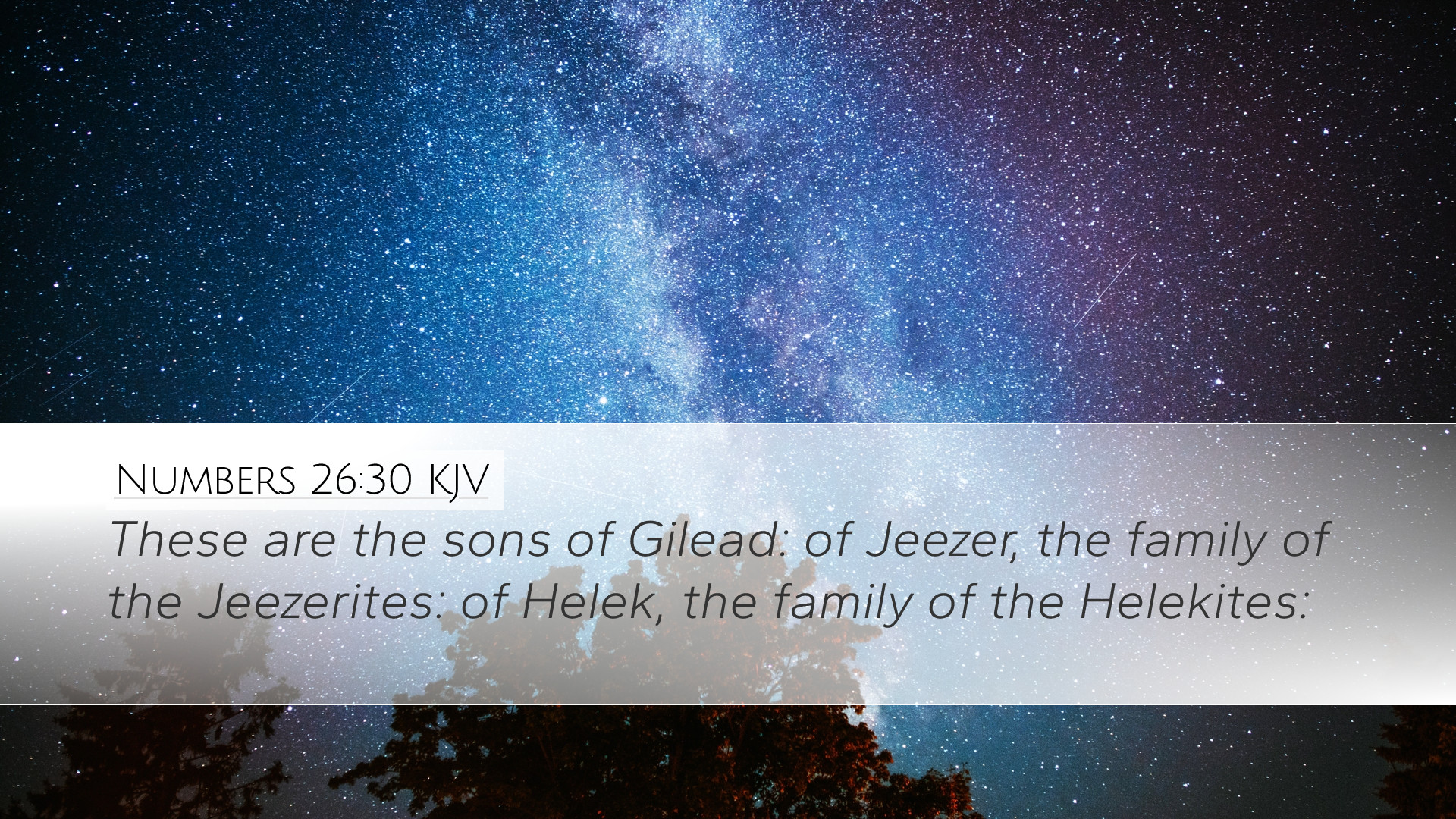Commentary on Numbers 26:30
Bible Verse: "This is the account of the descendants of Er, the firstborn of Aaron, and the heads of their families." - Numbers 26:30
Contextual Background
In the book of Numbers, we find a significant transition of leadership and generation within the context of Israel's wilderness journey. Following a thorough census that takes place in Numbers 26, this chapter highlights the divisions among the tribes of Israel as they prepare to enter the Promised Land. The mention of specific families and lineage serves both historical and theological purposes.
Key Themes in Numbers 26:30
- Divine Order: The census conducted demonstrates God's attention to detail and order within His people.
- Levite Heritage: The focus on Aaron’s family highlights the sanctity and significance of priestly roles established by God.
- Passing Legacy: The verse signifies the importance of lineage, particularly in terms of spiritual inheritance and covenant faithfulness.
Insights from Public Domain Commentaries
Matthew Henry’s Commentary
Henry emphasizes the significance of recording the genealogies of the Levites. He notes that “the families of the priests are distinguished here with particular regard” which serves to remind the Israelites of their sacred duties and responsibilities. The identification of Er, as Aaron's firstborn, serves as a reminder of God's covenant with Aaron and the importance of his lineage.
Furthermore, Henry points out that the names mentioned create an assurance of continuity in worship and service through the priestly line, highlighting that God's promises endure through generations despite the challenges faced by Israel.
Albert Barnes’ Notes on the Bible
Barnes notes that “the names of the descendants hold profound significance, conveying not just family ties but also God's relational covenant with humanity.” He observes that each name included is a testament to God's faithfulness, ensuring that His chosen people have a structured and identifiable leadership in worship.
Additionally, Barnes notes the significance of Er's mention. As the firstborn, his lineage holds prominence within the Levitical order, suggesting a hierarchy established by God within the priestly responsibilities which guided Israel’s spiritual life.
Adam Clarke’s Commentary
Clarke brings attention to the specifics of the Levitical families and their respective roles. He delineates how the descendants of Levite had direct implications for the organization of Israel’s spiritual system. The mentioning of Er highlights the vital importance of the firstborn in ancient Israel, where roles were often tied to birth order.
Clarke further expounds on the theological implications of this verse, illustrating how each family within this lineage held a pivotal role in mediating between God and Israel, thus anchoring the need for holiness and separation from the rest of the tribes.
Theological Reflections
This verse encapsulates themes of divine selection, holiness, and the continuity of leadership in Israel. It serves as a reminder that God orchestrates history through families and lineages which fulfill His purposes. Understanding the genealogy in context leads to a deeper appreciation for the sacrificial system that would soon be enacted through Aaron’s descendants.
Application for Pastors and Students
For modern pastors and theologians, Numbers 26:30 can be an essential text for examining the continuity of God's covenant and how His faithfulness is manifest in leadership structures today. The implications of the priestly lineage can be translated into contemporary discussions around church leadership, its sanctity, and the roles individuals play in the spiritual nurture of communities.
Emphasizing the importance of generational heritage in ministry can cultivate a sense of responsibility among current leaders to pass on their faith effectively to the next generation, just as the Levites carried forward their legacy of worship and service.
Conclusion
In summary, Numbers 26:30 not only provides historical insight but also serves profound theological reflections. It challenges believers to appreciate the depth of their spiritual heritage and the sacred trust handed down through generations. The references made contribute to a collective understanding of how God has continuously guided His chosen people through appointed leaders, paralleling the call for today’s believers to embody that same faithfulness in their spiritual endeavors.


